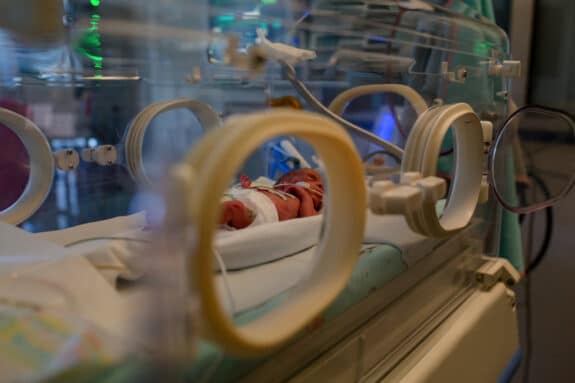Babies born at 22 weeks face a multitude of challenges, as they are extremely premature and have not fully developed in the womb. According to recent studies, the survival rates for these infants are low, with only about 10-35% of them surviving. However, medical advancements continue to push the boundaries of neonatal care, providing hope for improved outcomes in the future.
While most countries have a resuscitation threshold of 24 weeks for premature babies, more than 10 years ago Tyson et al. presented an argument for “moving beyond gestational age” when assessing outcomes data for extremely low birthweight (ELBW) newborns. The likelihood of the success of both resuscitation and neonatal intensive care, along with the baby’s birth weight is considered over gestational age, which is a win for new parents.
New research published in BMJ Medicine reveals what we have seen through our premature baby coverage over the last decade. There is a three-fold increase in the number of very premature babies receiving respiratory life support and being admitted to neonatal units in England and Wales. These findings, resulting from changes in national guidance in 2019, highlight the promising progress in survival-focused care. However, despite the increase in survival rates, overall survival remains low, raising concerns about the need for additional resources.
The updated guidance from the British Association of Perinatal Medicine emphasizes a risk-based approach for decision-making and parental discussions regarding premature babies, including those born at 22 weeks. However, the impact of this guidance on neonatal care provision has not been evaluated until now.
To assess the effects, researchers examined retrospective data from two national datasets in England and Wales. These datasets included information on live births from 22 weeks onwards, outcomes up to hospital discharge, and details of care provision. The study focused on various factors, such as survival rates, length of neonatal unit stay, and discharge without major health issues.
The results showed that the number of premature babies born at 22–24 weeks reached 5,623, with 1,604 stillborn. Among the 4,019 babies alive at the start of labor, 25% were born at 22 weeks, 34% at 23 weeks, and 41% at 24 weeks.
The study revealed a significant increase in the use of respiratory life support for babies born at 22 weeks, rising from 11% in 2018–19 to 38% in 2020–21. Likewise, admissions to neonatal units for these babies increased from 7.5% to over 28%, and survival to discharge from neonatal care increased from 2.5% to over 8%. However, the number of deaths before discharge also rose from 26 to 95.
The researchers note that changes in the characteristics of babies receiving respiratory life support may explain these results. The study also highlighted a substantial increase in the total number of care days provided to babies born at 22 weeks.
While acknowledging the limitations of their study, the researchers suggest that the introduction of the British Association of Perinatal Medicine guidance was associated with these rapid and significant changes. They emphasize the need for international research to improve outcomes and identify prognostic factors for this vulnerable group of babies.
More Premature Baby News:







